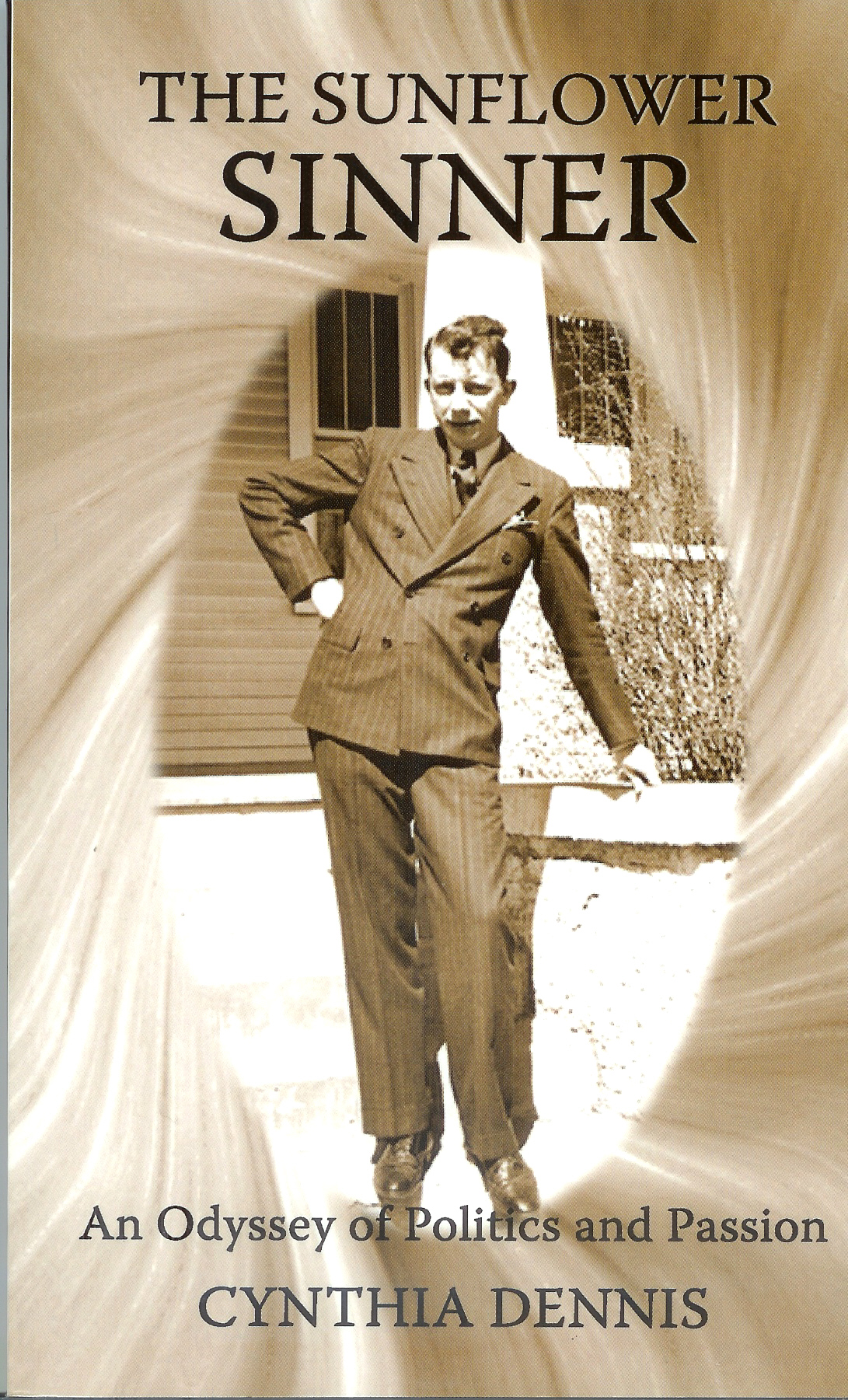For March of 2008 I am adding a writer who has long lived and worked as a journalist in Wisconsin, but grew up in McPherson, Kansas, as her father was pursuing his ambition to become governor of Kansas--which certainly gives her her Kansas connection. The book telling that coming-of-age story is The Sunflower Sinner, which was published by the Woodley press last year.THE SUNFLOWER SINNER-------------CYNTHIA DENNISI was not involved in selecting the book for the Woodley Press, and did not know anything about Cynthia Dennis before the book was published. I have only met her once, in fact, when she had a book signing at the Barnes and Noble store here in Topeka late last year, and I got a copy of the book.
But this book definitely tells a Kansas story, from the late 1940s to the early 1960s, and while, given the author's literary skills, it reads like a novel, with surprise, suspense, and character development, older Kansas readers will no doubt be testing their own memories of what was going on in the Republican party in Kansas in those years against those of this teenage girl who is gradually losing her faith in her wonderful father. In the beginning the whole family, including this oldest of three daughters ("the harem"), is sure that his ambition will be realized, for he constantly assures them that it will, but, instead, though still talking about becoming governor, he gradually becomes the "Sunflower Sinner."
It is certainly the coming-of-age story of the narrator, as she relates her experience in gradually losing faith in this father, as she discovers that he is having an affair with his secretary, is involved in arranging a bribe for a particularly unsavory character (who had been sent to prison for murdering a young woman while performing an abortion) to receive an early parole, has lost the political leverage that made him one of those closest to Governor Fred Hall at that time, and finally becomes an alcoholic who is constantly moving seeking serious government or legal work, and can't hold a serious job at all--but still talks as if he has a political future. By the end of the story the daughter has become thoroughly disillusioned.
It might also be seen as a parable of small-town political ambition, the coming of age story of the father as well, but as seen through the eyes of those who are most affected by what is happening. Every time I look at the picture of the father as the ambitious young politician on the front cover of the book (taken in front of his parents' home) I think of the naivete such ambition often reflects. The story emphasizes how strongly Paul Andrew Lackie was convinced by his mother that he had a special destiny--which the author underlines with the birthday note his mother, Hattie, wrote to him early in his career (say when that picture was taken) that he always carried with him, long after she had died, and that "had sat propped on his motel bedside table the night he died," after he had lost whatever political power he might once have had, and the faith of all the other women in his life.
Those who would like to to learn more about the book, including how to
order a copy, might go to The Woodley Press web site, at:http://www.washburn.edu/reference/woodley-press, or get in touch with the author at:
cynden@aol.com, or: www.cynthiadennis.com

 ---
---